Observances Study Guide
Observances refer to the act of observing or celebrating a particular event, tradition, or custom. In the context of a calendar, observances are special days or periods that are recognized and commemorated for various reasons.
Types of Observances:
- National Holidays: These are official holidays recognized by a country to honor significant events or people in its history, such as Independence Day or Labor Day.
- Religious Observances: These are days of religious significance and are observed by followers of a particular faith, such as Christmas, Eid al-Fitr, or Diwali.
- Commemorative Observances: These are days set aside to remember and honor specific groups or causes, like Memorial Day or International Women's Day.
- Cultural Observances: These are days that celebrate aspects of a particular culture, such as Chinese New Year or St. Patrick's Day.
Reasons for Observing:
Observances serve various purposes, including:
- Preserving cultural and historical traditions
- Religious or spiritual significance
- Recognizing and raising awareness about important social issues
- Bringing communities together in celebration
- Honoring individuals or groups for their contributions
Examples of Observances:
Some examples of observances include:
- Earth Day (April 22) - A day to raise awareness about environmental protection
- Hanukkah - A Jewish holiday commemorating the rededication of the Second Temple in Jerusalem
- Black History Month (February) - A time to celebrate and honor the achievements and contributions of African Americans
- Cinco de Mayo - A Mexican holiday that commemorates the victory over the French at the Battle of Puebla
Study Tips:
When studying observances, it's important to:
- Understand the historical, cultural, or religious significance of each observance
- Learn about the traditions, customs, and symbols associated with different observances
- Consider the global impact and relevance of certain observances
- Reflect on the importance of diversity and inclusivity in recognizing various observances
By understanding and appreciating observances, we can gain a deeper understanding of the world's diverse cultures, traditions, and beliefs.
.◂Math Worksheets and Study Guides Fifth Grade. Elapsed Time
Study Guide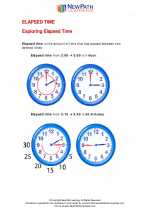 Elapsed Time
Elapsed Time  Activity Lesson
Activity Lesson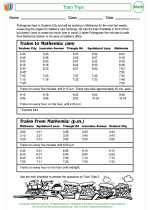 Train Trips
Train Trips  Activity Lesson
Activity Lesson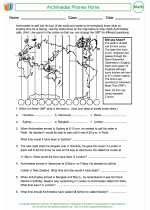 Archimedes Phones Home
Archimedes Phones Home  Worksheet/Answer key
Worksheet/Answer key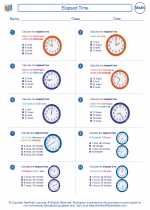 Elapsed Time
Elapsed Time  Worksheet/Answer key
Worksheet/Answer key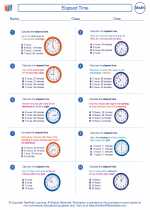 Elapsed Time
Elapsed Time  Worksheet/Answer key
Worksheet/Answer key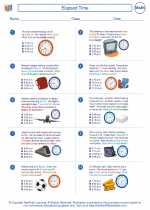 Elapsed Time
Elapsed Time  Worksheet/Answer key
Worksheet/Answer key Measuring Time and Temperature
Measuring Time and Temperature  Worksheet/Answer key
Worksheet/Answer key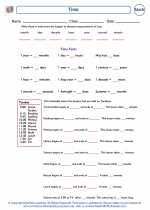 Time
Time  Worksheet/Answer key
Worksheet/Answer key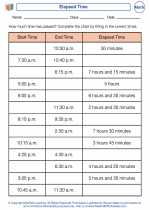 Elapsed Time
Elapsed Time 

 Activity Lesson
Activity Lesson
 Activity Lesson
Activity Lesson
 Worksheet/Answer key
Worksheet/Answer key
 Worksheet/Answer key
Worksheet/Answer key
 Worksheet/Answer key
Worksheet/Answer key
 Worksheet/Answer key
Worksheet/Answer key
 Worksheet/Answer key
Worksheet/Answer key
 Worksheet/Answer key
Worksheet/Answer key

The resources above cover the following skills:
Knowledge of Measurement: Students will identify attributes, units, or systems of measurements or apply a variety of techniques, formulas, tools, or technology for determining measurements.
Applications in Measurement: Calculate equivalent measurements.
Determine start, elapsed, and end time (Assessment limit: Use the nearest minute).